Tips
It is advisable to read the rules before going through the tips below.
Find pairs
Because no more than two identical numbers may be placed next to or below each other, pairs can be completed with the other number. In the example below, both blue cells must therefore contain a zero.
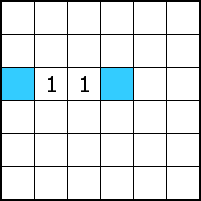
Avoid trios
If two cells contain the same number with an empty cell between them, the other number can be entered in this empty cell. The blue cell in the example below must therefore contain a one; entering a zero would create a trio.
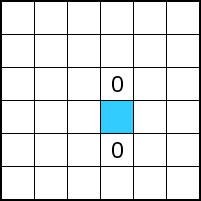
Complete rows and columns
Each row and column contains an equal number of zeros and ones. If the maximum number of zeros in a row or column is reached, the remaining cells can be filled with a one, and vice versa. In the example below, each column and row contains three zeros and three ones. This means that the blue cell in the third row is a one, and the two blue cells in the third column can be filled with a zero.
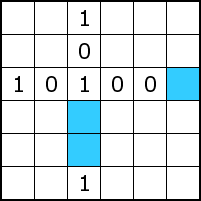
Eliminate impossible combinations based on completely filled rows and columns
In the example below, a one and a zero are missing from the bottom row. If the one is entered in the left blue cell and the zero in the right blue cell, a row equal to the second row will be created. This is not allowed. Therefore, the zero must be entered in the left blue cell and the one in the right blue cell.
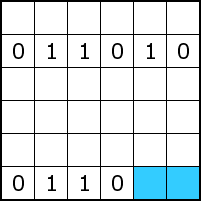
Eliminate other impossible combinations
In the example below, a one is missing and two zeros are missing in the fourth row. If we fill in the one in the blue cell (and the two zeros in the other two empty cells in the fourth row), a trio is created. Because this is not allowed, the blue cell must contain a zero.
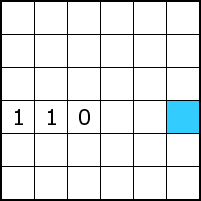
Also read:
Solving difficult binary puzzles
